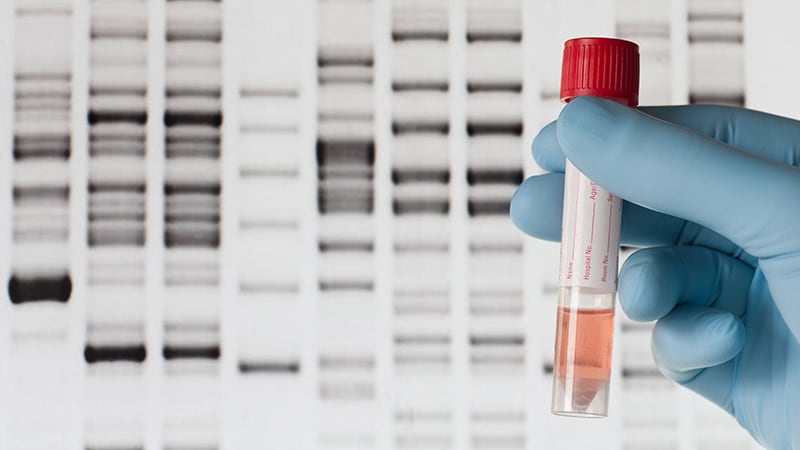Benefits of Rapid Genome Testing in NICU Care: Israeli Study
Основні поняття
Rapid trio genome sequencing in critically ill neonates is feasible and beneficial for diagnosing genetic disorders.
Анотація
TOPLINE:
Study in Israel shows benefits of rapid trio genome sequencing in critically ill neonates.
METHODOLOGY:
Prospective study from Oct 2021 to Dec 2022 in Israeli medical genetics institutes and NICUs.
130 neonates suspected of genetic disorders enrolled, with results in 10 days.
TAKEAWAY:
50% diagnosed with disease-causing variants, 11% with unknown significance variants.
Mean turnaround time for reports was 7 days.
Genomic testing changed clinical management for 22% of neonates.
IN PRACTICE:
Genetic testing aids precision treatment and family planning.
SOURCE:
Study by Daphna Marom, MD, published in JAMA Network Open on Feb 22, 2024.
LIMITATIONS:
Voluntary participation may introduce referral bias.
Long-term impact on survival, growth, and development needs evaluation.
Bioinformatics tools have limitations, as seen in missed detection cases.
DISCLOSURES:
Study sponsored by Israeli Ministry of Health, Illumina, and Genomics Center.
Illumina provided reagents, tools, and editorial assistance.
National Rapid Genome Testing Program Benefits NICU Care
Статистика
Rapid trio genome sequencing diagnosed 50% of neonates with disease-causing variants.
Mean turnaround time for reports was 7 days.
Genomic testing led to a change in clinical management for 22% of neonates.
Цитати
"Genetic testing may identify patients who are candidates for precision medical treatment and inform family planning." - Study authors
Ключові висновки, отримані з
by Medscape Med... о www.medscape.com 02-27-2024
https://www.medscape.com/viewarticle/national-rapid-genome-testing-program-benefits-nicu-care-2024a10003rz
Глибші Запити
How can the findings of this study impact neonatal care practices?
The findings of this study can significantly impact neonatal care practices by showcasing the diagnostic benefits and feasibility of rapid trio genome sequencing in critically ill neonates. With a high success rate in diagnosing disease-causing variants and a quick turnaround time for results, this approach can lead to more accurate and timely diagnoses, potentially improving patient outcomes. Additionally, the study demonstrated that genomic testing resulted in a change in clinical management for a notable percentage of neonates, highlighting the clinical utility of this approach. This can lead to more personalized and targeted treatment strategies, ultimately enhancing the quality of care provided to neonates in the NICU.
What are the potential drawbacks of relying on voluntary participation in medical studies?
Relying on voluntary participation in medical studies can introduce several potential drawbacks. One major concern is the possibility of referral bias, where the participants may not be representative of the broader population, leading to skewed results. This can impact the generalizability of the findings and limit the applicability of the study's conclusions to the wider patient population. Additionally, voluntary participation may result in a self-selection bias, where individuals who choose to participate may have certain characteristics or motivations that differ from those who do not participate. This can affect the validity and reliability of the study results. Furthermore, voluntary participation may lead to challenges in recruiting a diverse and inclusive sample, potentially limiting the study's ability to address health disparities and ensure equitable representation.
How can advancements in genomic testing benefit other areas of healthcare beyond neonatal care?
Advancements in genomic testing can benefit other areas of healthcare beyond neonatal care by revolutionizing the diagnosis and treatment of various genetic conditions across different patient populations. In oncology, genomic testing can help identify specific genetic mutations in cancer cells, guiding targeted therapies and personalized treatment plans. In rare diseases, genomic testing can lead to earlier and more accurate diagnoses, enabling timely interventions and improved patient outcomes. Furthermore, in pharmacogenomics, genetic testing can help predict individual responses to medications, optimizing drug selection and dosing for better therapeutic efficacy and reduced adverse effects. By integrating genomic testing into different specialties and healthcare settings, healthcare providers can deliver more precise, personalized, and effective care to patients, ultimately advancing the field of precision medicine.
0
